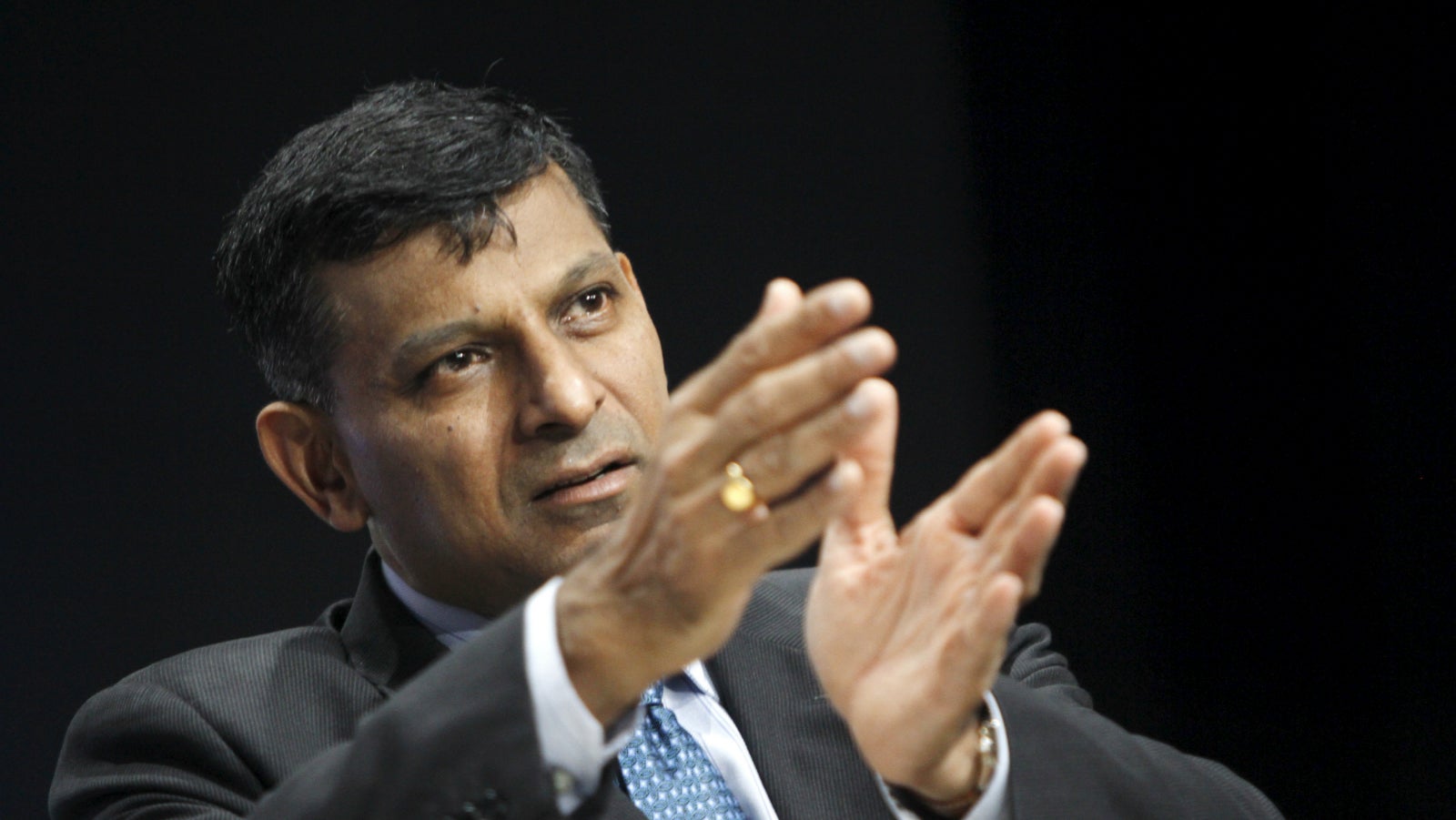The Modi government is to blame for Raghuram Rajan’s exit—and investors will punish it
India Inc is rarely critical of those in power. Apart from an odd business leader, most corporate honchos avoid taking up the cudgels against the powers that be. The best example of this is seen on the day of the union budget when one corporate leader after another praises the budget, and almost immediately after the camera is turned off, critiques it.


India Inc is rarely critical of those in power. Apart from an odd business leader, most corporate honchos avoid taking up the cudgels against the powers that be. The best example of this is seen on the day of the union budget when one corporate leader after another praises the budget, and almost immediately after the camera is turned off, critiques it.
This weekend, however, has been different.
After Raghuram Rajan dropped the bombshell on Saturday, announcing that he no longer seeks a second term as governor of the Reserve Bank of India (RBI), there has been an outpouring of distress. Several corporate leaders have even called it a “national loss.”
Investors, on the other hand, are less forgiving of governments.
They are more outspoken and critical of government policies. They vote with their feet, as they are now likely to do, starting Monday. For them, it is not about whether Rajan’s exit means that India’s economy will sink—for, that is far from the truth.
Investors often see what we fail to.
They are more concerned with the direction and stability of policy-making by any government. They like to see the government and its leaders walk the talk. They are less likely to believe that Rajan’s exit has to do with Subramanian Swamy’s tirade against him. In fact, it isn’t.
Rajan is not weak-kneed. He is as tough as they come. A few barbs are not enough to make him throw in the towel. Rajan’s decision to quit is more to do with the government cutting down the RBI governor’s stature over the past two years.
As I had reported last year, the governor was asked to join an official Indian delegation to the International Monetary Fund, under the then finance secretary, since the finance minister was indisposed.
However, the RBI governor is actually higher than the finance secretary in ranking. The incident prompted the RBI to seek a cabinet-rank post for the governor (it is already a minister of state rank), a request that was shot down.
There were also the frequent public spats between the government and RBI, but these pertained mostly to when and how much to cut interest rates. The personal attacks only came recently.
Rajan, a seasoned campaigner, made peace with all of this. In fact, when, at an RBI anniversary celebration, the prime minister hailed him as a great teacher who he enjoys interacting with, it was almost certain that Modi backs Rajan and that all was well. But it was not to be so.
Recently, the government cut some more ground from under the RBI governor’s feet.
It decided to make him a member of a panel that would shortlist a deputy governor. The panel would not be headed by the RBI governor, but instead by the cabinet secretary.
Since any such appointment (joint secretary/equivalent and above) is in any case cleared by the Appointments Committee of Cabinet (ACC) headed by the prime minister himself, what was the need to cut RBI governor’s power in shortlisting who he would want as his deputy? The RBI governor, unlike other regulators, enjoys a higher rank.
The final nail in the coffin came when the government asked the same cabinet secretary-led panel to shortlist candidates for the RBI governor’s post. Rajan, though eligible, would have to appear for an interview and compete with others to retain his post—or, maybe, even end up being rejected.
I suspect it is for this reason that he decided not to seek another term. Rajan, perhaps, preferred the government asking him to continue than expect him to go through an interview process.
In other words, it is not Swamy’s sniping but the Modi government’s decisions that have prompted Rajan’s exit.
Now, why will this not go down well with investors?
It is because, in Rajan, India had a governor who was globally recognised and valued, who played as much a role as prime minister Modi in putting India on the global map. Central bankers around the world listened to him when he spoke. It had a governor who was a man of integrity and decided to go after crony capitalists and wilful defaulters with a vengeance.
All of these and more are qualities investors and citizens alike expected Modi to value.
Rajan’s exit has to be seen in a larger context, too. There have been a series of recent appointments to key institutions that have generated enormous debate, and criticism.
A sound leader—as the prime minister projects himself to be—is one who ensures the best talent on the bus. Once you have the best team, not only do you reach the destination but you also enjoy the ride. You hire the right people for the right position, allow people to grow—and, above all, retain good talent.
In Rajan’s case, this has not happened. And this is why I suspect, investors are going to be fairly unforgiving come Monday.
Vivek Law is co-founder and editor-in-chief of investonomix. We welcome your comments at [email protected].